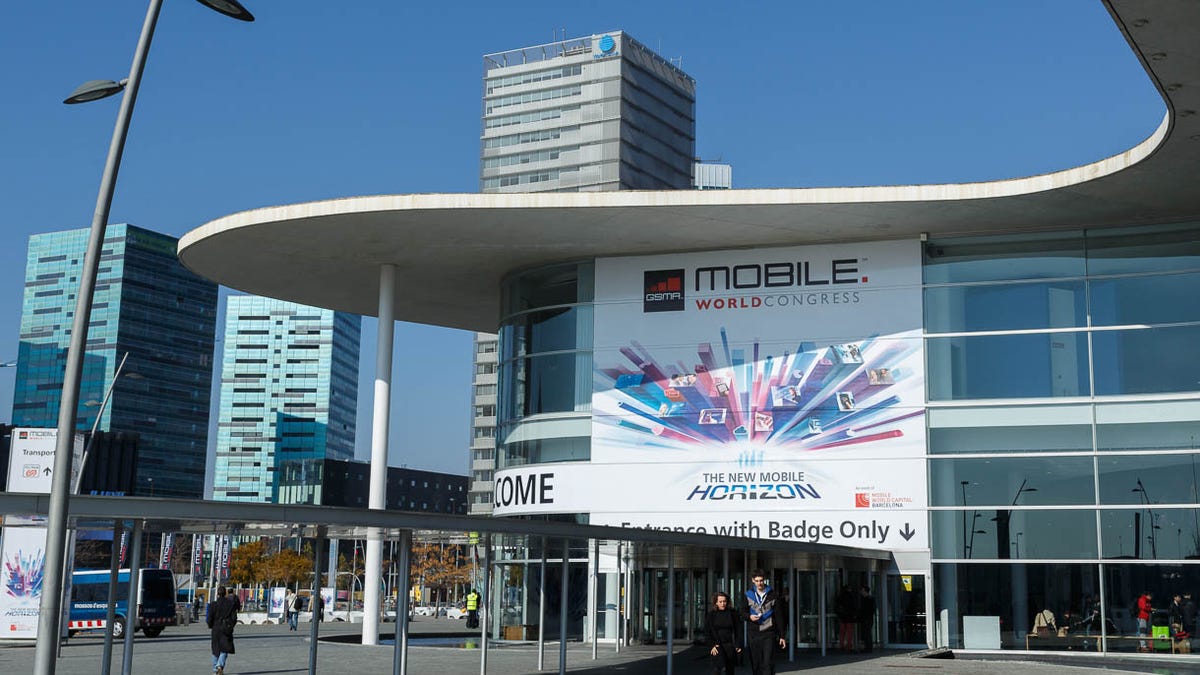This 'Gigabit' phone is 5G hype's jump-the-shark moment
ZTE makes a serious claim for its newest "phone." But don't hold your breath on actually getting to use one.

Pop quiz: When is a phone not a phone?
When a company is trying to tap into the ever-increasing hype over cutting-edge 5G wireless technology.
That's what ZTE tried to do on Sunday with the debut of its "Gigabit Phone" at Mobile World Congress in Barcelona. ZTE touts the device as the world's first phone capable getting a 1 gigabit per second wireless connection, roughly 50 times faster than the average cellular speed in the US. It's supposed to serve as a stepping stone towards full-fledged 5G technology.
But here's the thing: The Gigabit Phone isn't really a phone. Yes, it includes many of the internal guts you'd expect to find in a phone, including a Qualcomm Snapdragon 835 processor, but the display only shows a speed test, and its real purpose is to show off the company's networking prowess. And it's not coming out any time soon.
As far as big promises with little follow through go, this is par for the course for a big trade show like Mobile World Congress.
For ZTE, jumping in with a "world's first" gives the Chinese company something to crow about. That's important as ZTE fights to get noticed in a sea of budget phone makers. The gigabit feature is also a reminder that ZTE boasts a strong network infrastructure business, even if you don't see it in markets like the US.
And while the gigabit technology isn't 5G, it's clear that ZTE wants to wrap itself in the 5G hype, one of the hottest trends in the wireless industry that's supposed to transform our society through faster, more ubiquitous coverage. ZTE calls it a "5uper Generation" (it's pronounced "super") phone and talks about its strength in the 5G and pre-5G fields.
"This is a lot like 5G -- carriers and (original equipment manufacturers) are clearly betting that there's some mileage in being seen as first to 5G or gigabit speeds, but there's a real risk that when real-world performance doesn't match the hype, people quickly get sick of it," Dawson said.
On Sunday, ZTE showed off the Gigabit Phone at its Mobile World Congress press conference.
ZTE is just one of many companies talking about 5G and pre-5G technology at the trade show. The standards body pushing 5G said it'll be able to get things settled by 2019 -- a year earlier than expected -- and Qualcomm and Intel have both talked about 5G and gigabit chips at the show.
"It's an illustration of what's to come," Jeff Yee, ZTE's vice president of technology and partnerships, said in an interview ahead of the show.
When I asked about whether it was disingenuous to call the Gigabit Phone a world's first when it isn't truly a phone, I got awkward silence. After a few more moments, Yee referred me to his public relations handler.
"We're showcasing the technology," said a ZTE spokesman. "We're not jumping the gun."
But here's the other rub when it comes to gigabit technology: it's not even here yet. Virtually all of the carriers are in the process of upgrading their networks to accommodate such speeds, with some targeting later this year. At the Consumer Electronics Show in January, T-Mobile vowed to be the first in the US to hit that 1-gigabit mark.
Still, even if the network is ready, it's just a theoretical peak speed -- once you have more than one person competing for bandwidth, the speed starts to drop.
"As networks have filled up, average speeds have come down, so real-world speeds are a fraction of the advertised ones," said Jan Dawson, an analyst at Jackdaw Research.
The real benefit is even with massive congestion, you'll likely be enjoying speeds far higher than today's service.
Just don't hold your breath waiting for the phone -- or these networks -- to show up soon.
CNET Magazine: Check out a sample of the stories in CNET's newsstand edition.
Life, disrupted: In Europe, millions of refugees are still searching for a safe place to settle. Tech should be part of the solution. But is it?

